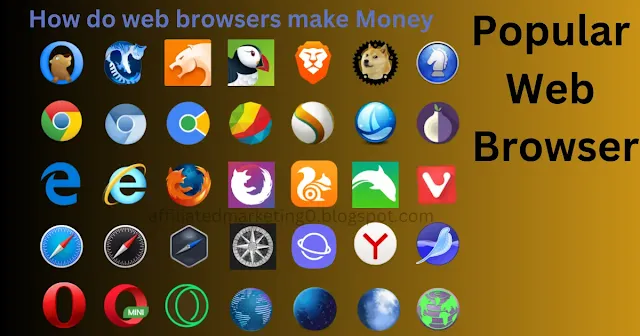Web Browser App for Android Free Download 2024
The web browser is an essential tool for getting around the vast digital world of the internet. It opens up a world of knowledge and communication. Software that turns the complicated language of websites into things we can understand on our computers is much more than just a program. It lets us access many different websites, each with its material, services, and links. This introduction goes deep into the world of web computers, looking at what they can do, how they work, and the different features that make our online lives more manageable. Also, we'll talk about how web browsers and search engines differ so you have a good grasp of these two essential web tools.
What is a Web browser?
Your web browser serves as the entry point to the extensive internet. It is software that enables users to visit and navigate websites. Browsers operate by retrieving information from a web server and converting it into a format understandable to the user when a web address (also known as a URL) is entered into the address bar. Videos are also included alongside the text. In essence, the browser functions as an interpreter, rendering the intricate language of the internet into an intuitive and straightforward format. It functions as an application installed on a personal computer or mobile device, enabling access to various websites and showcasing their captivating content.
.webp)
Popular Web Browsers:
Google Chrome: Alone among web browsers, Chrome holds a market share of more than 64 percent. It is renowned for its security, usability, and efficiency. Chrome is accessible on an extensive array of devices, encompassing personal computers, Macs, mobile devices, and tablets.
Apple Safari: Safari is the web browser used by default on iPhones, iPads, and Macs, among other Apple devices. It is an integrated browser that operates quickly and effectively with other Apple products. Safari is also highly concerned with privacy.
Microsoft Edge: Edge is the web browser by default in Windows 10 and 11. It is a substantial advancement over Internet Explorer, the previous browser developed by Microsoft. Edge is reliable, quick, and compliant with extensive web standards.
Mozilla Firefox: Firefox is a well-known free and open-source web browser with robust privacy and security features. Additionally, it is highly configurable, enabling users to alter the browser's appearance and feel to their preference.
Opera: Opera is a cutting-edge and quick web browser that, among other distinctive attributes, provides users with access to their preferred websites and applications via a sidebar and an integrated VPN.
When determining which web browser is most suitable for your requirements and preferences, consider features, speed, security, privacy, customization, and speed, among other things. Those above are merely a few prominent web browsers currently available.
You May Also Visit this: Microsoft Toolkit
Screenshot:

Features of Web Browser
Sure, here's a detailed breakdown of features commonly found in web browsers:
User Interface (UI):
The following is the appearance of the browser window upon opening. It comprises the search bar, address bar, tabs, and bookmarks bar, among other elements.
Navigation:
Address bar: This bar allows users to access a desired website by entering the address (URL) of that site into it.
Navigation buttons: The Back, Forward, Refresh, and Stop buttons are among these. These elements enable the user to navigate through their browsing history, pause the rendering of a site, and refresh the current page to view any modifications.
Home button: By clicking this icon, the user is redirected to the main page of their choosing, a predefined URL.
Tabbed browsing: This fundamental functionality enables concurrently displaying multiple web pages in a solitary browser window. It is simple to navigate between windows to observe various pages.
Bookmarks and Favorites:
This functionality enables users to store the URLs of frequently visited websites for convenient future access. These preserved websites are accessible again with a simple click.
Search:
Locating information on the web can be done by entering keywords or phrases into the search bar, which is standard on most web browsers. Although this search bar generally employs the default search engine, it can frequently be modified to your liking.
Security and Privacy:
Web browsers have security features that safeguard against malicious software and websites. They may also provide privacy features, such as blocking cookies or enabling private browsing mode, to prevent the tracking of your browsing history.
Customization:
The majority of web browsers permit customization of the browsing experience. The user can modify the visual and tactile aspects of the interface, oversee extensions (also known as add-ons) that offer supplementary functionalities, and establish privacy and security configurations.
Other Features:
Downloads Manager: Manages and monitors the acquisition of files from the web.
Printing: Printing capabilities for web pages.
Developer Tools: Browsers incorporate tools for inspecting and debugging web pages accessible to sophisticated users and web developers.
Choosing a web browser:
Priorities:
Privacy: Regarding safeguarding online privacy, specific web browsers are superior to others. Consider the Tor Browser, designed with the utmost anonymity in mind. Additional alternatives that prioritize privacy are Brave and Firefox.
Speed: For those who place a premium on browsing speed, Google Chrome and Brave are renowned for their lightning-fast operation.
Features and Customization: Firefox and Vivaldi are excellent alternatives for users seeking an incredibly customizable web browser with many options.
Security: Ensuring security is an essential component of any web browser. Thankfully, most prominent web browsers provide robust security features, such as protection against fraud and malware.
Conclusion:
Web browsers are essential entry points to the extensive repository of information available on the internet. They facilitate interaction and construct a visual representation of website code, connecting users with the digital environment. In addition to merely hosting webpages, their responsibilities also include:
- The management of bookmarks.
- The protection of online transactions.
- The customization of the browsing experience via extensions.
Web browsers prioritize user experience, efficiency, and security in their ongoing development and are positioned to continue to be the foundations of our digital interactions for the foreseeable future.




0 Comments